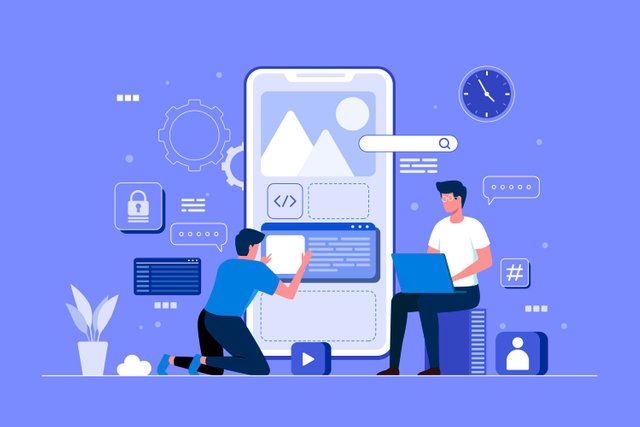What Are APIs? The Complete Guide to Use APIs in Your Android App
APIs that stand for Application Programming Interfaces are visual interfaces between two separate programs or software. These interfaces may or may not have a locally stored database or coding. Many popular programs allow other websites or apps to share access to their interfaces through what is commonly known as APIs.
APIs require a lot of permissions and layovers. This could potentially be a problem for apps on iOS. Android devices however offer maximum control over the software and the hardware so APIs are usually optimized by the Android devices more than their counterparts.
How do APIs work?
APIs normally work on “calls”. When a suitable input is offered by a user on a platform, there is an API call made by the program. This program decodes the relevant input and fetches relevant data for it. This data is then sent to the platform that matches the relevant data and information to it and displays it to the user.
Popular APIs include logins, weather, payment interfaces, navigations, reservation & bookings, etc. With the possibility of ad revenues and third party access, android application development services For instance, if you are on an online food delivery app, you need to enter either your pin code or allow the app or website to fetch your location. Based on your input, the geographical API makes a call and fetches the locality of the user based on the API’s separate backend. Based on the surrounding and geographical location information that the API provides to the platform, the app or website displays relevant results which in this case would be restaurants closest to you.
Types of APIs
Fundamentally there are 3 types of APIs - Private, Partner & Open APIs. There is another type that largely combines calls of different APIs and makes them into one. When you opt to develop an app for your business, one of the very first few things to do is to make out a list of APIs that you might need a subscription for.
Private APIs
Private APIs act as private programs that only verified users can access within a group. These are small programs mostly used at enterprise levels. These APIs can’t be accessed by third party developers.
Partner APIs
These are again small programs used at enterprise levels, but between two enterprises. These enterprises can be in the form of manufacturers and vendors. These APIs offer great transparency and productivity in the business.
Open APIs
Open APIs are the ones developed by third party developers and are open for anyone to access. These are the most popular ones and the most used ones as well. These APIs are used for general purpose and can offer a wider variety of features compared to the other two.
Composite APIs
Composite APIs combine all your requests into one and offer you a unified response from various respondents. If you need to access data from different servers or apps, you can use a composite API to make a single request or call that connects to multiple apps or servers and gathers data that is presented to you in a uniform manner.
How to Use APIs in Your Android App
The benefit of having APIs on your Android app is that you don’t have to program or code every complex functionality that is commonly available as a third party interface. This lowers your coding requirements and removes any dead weight on your app memory. Here are some easy steps to use APIs in your Android App.
API Key
The API key acts like a validation between you and the program. It identifies your app and sets permissions right away. API key also records the interactions.
Request
After the key is accessed, the next step is to send a request. Usually this request is written using an HTTP client that helps you structure your request.
Connect App
Once your request is sent, you can now sync your app with the program. This can be done with the help of programming languages like Python, Java, PHP or NodeJS.
After the execution of these steps, your app is pretty much good to go. Based on the user input, the system will now do its own tasks and exchange data and functionalities.
Conclusion
APIs are a great way to offer exciting new functionalities on your app without having to code for everything. This ecosystem works on sessions. This also allows users to not pay a flat out rent and only pay for the services when they acquire them. The future for API is very promising given how it has been perceived so far. The basis of it still is data but third party APIs are a big stream of revenue for developers if done right.

